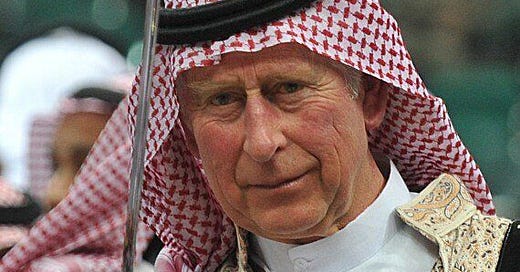Episode Twenty-Five: The Will to Act
One of the more odd aspects of the last few days of constitutional psychodrama emerged in the discussions relating to the prospect of the Prime Minister requesting the Monarch to dissolve Parliament so that a new General Election could take place. As was widely noted, a Prime Ministerial request for such an election could easily be refused by the Queen under the Lascelles Principles, one of those British constitutional conventions that nobody (us included) had heard of a week ago but now have been hastily committed to memory.
The Principles state that the Monarch may reasonably deny an election if the existing Parliament is still viable, an election would damage the economy, and the sovereign is confident that they will be shortly be able to find an alternative Prime Minister who can command the confidence of the House of Commons. As originally formulated, all three criteria should be met before the request for a General Election is denied, though the second is no longer thought to be part of modern-day formulations. They are clear and straightforward and eminently sensible, and their author noted historical precedents for when Governors-General in South Africa and Canada had denied Prime Ministerial requests for elections.
The strange thing about the commentary surrounding the last few days, however, is the strange insistence not that the Lascelles Principles might be invoked by the Queen, but by the widespread insistence that the Prime Minister must somehow be prevented from even making the request, lest the Queen be drawn into politics. Somehow, we have reached a situation where the entirely apolitical personal stance of the Monarch has become a hindrance to the proper functioning of the Constitution. Lascelles, writing in the reign of King George VI, notes that
“The problem of such a choice is entirely personal to the Sovereign, though he is, of course, free to seek informal advice from anybody whom he thinks fit to consult…”
This framing implies real executive discretion. At no point does the writer stop to consider that the Monarch must be “protected” from potentially improper requests for elections. Even in the 1950s, it was still apparent to the political elite that the King held real political power that he could exercise at his own discretion in certain specific situations. No one has revised the constitution since. All that’s changed is that the current Monarch is extremely reluctant to exercise the power she holds, and has reigned for so long that everyone thinks of her personal choices as intrinsic to the institution. They are not, and future monarchs should not feel bound by them.
A future monarch, cultivating the will to act in a practice duel in a desert with Liam Neeson.
Without wishing to commit lèse-majesté, one wonders what is the point of a constitutional monarch that will not uphold the constitution. To be the guarantor of faith(s), tradition, and constitutional order requires the exercise of power, or at least the willingness to do so. In the absence of power a vacuum lies, waiting to be filled by those unscrupulous enough to seize it. The status quo appears to be that Her Majesty’s private secretary will very quietly seek to discourage ministers from making requests that the Queen views as too dangerous, a mechanism that entirely relies on some level of good faith. But in the absence of monarchical will to exercise power directly in extremis, this leaves the country highly vulnerable in the case of the eventual ascent of a Prime Minister with absolutely no regard for constitutional order whatsoever.
In time, this issue may resolve itself. Perhaps the problem is limited merely to the risk-aversion of Elizabeth II. It is hard to see King Charles III or even William V actively giving up power on the same scale as she has. Had her son been King in 1986, it seems unlikely that the Australian states would have had to fight quite so hard to maintain the right for their ministers to advise the Sovereign directly. Anne Twomey dryly chronicles the somewhat amusing spectacle of the states, the British government, and eventually even the Australian government all agreeing that the monarch should continue to exercise power directly in the states, while Buckingham Palace continued to insist that it should only be advised by the federal government, lest the monarch ever encounter a situation where she receive conflicting advice from state and federal ministers and be forced to - of all unspeakable horrors - have to make a genuine decision.
It can well be argued that Australian history also offers a direct warning as to the risks of monarchical risk-aversion. Part of the reason why the chaotic 1975 constitutional crisis unfolded in the way it did seems to be that the Governor-General, Sir John Kerr, felt he could not warn Prime Minister Whitlam of his intention to dismiss him unless Whitlam called an election because he feared that Whitlam would then advise the Queen to terminate Kerr’s spell in office. Rightly, Kerr judged that the monarch would not intervene to act as a neutral broker in the unfolding crisis, was fairly likely to mechanically accept Whitlam’s advice for his termination, and he was alone to navigate the situation as best he could. The result was Kerr’s sudden dismissal of Whitlam from office, an act that has left a bitter aftertaste in Australian politics even to this day.
As reign of Elizabeth II draws to an end, the British monarchy is left facing the choice to embrace its proper constitutional functions once again, or withdraw from them entirely, becoming a purely ceremonial institution. The latter, however, may be more risky than the former. Kitschy hologram processions and afternoon tea with Paddington Bear may captivate the fickle masses for now, but as a long-term strategy for institutional preservation? Perhaps a gamble not worth taking. Better to realize that ceremony is nothing - the will is everything!



